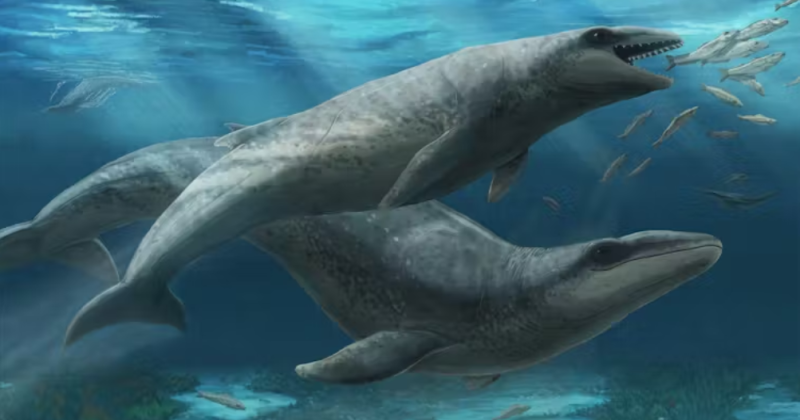
Australian scientists have unearthed a remarkable discovery: a new species of ancient whale that challenges our understanding of these marine giants. This newly discovered creature, named *Janjucetus dullardi*, roamed the oceans a staggering 26 million years ago. While its size – roughly that of a dolphin – might initially suggest a relatively harmless creature, its appearance tells a different story. Researchers describe it as ‘deceptively cute,’ possessing large eyes and a mouth full of sharp, slicing teeth, hinting at a predatory lifestyle akin to a shark-like version of a baleen whale.
The discovery stems from an exceptionally well-preserved skull fossil, unearthed on Victoria’s Surf Coast in 2019 by local Ross Dullard, after whom the species is named. The skull, a crucial piece of the puzzle, allowed Museums Victoria scientists to piece together a comprehensive picture of this ancient predator. Their findings, published in the *Zoological Journal of the Linnean Society*, detail a fast, agile hunter that likely thrived in the shallow seas of what is now Australia.
This is the fourth mammalodontid species ever discovered, and the third found in Victoria, highlighting the region’s significance as a hotbed for early whale evolution. Paleontologist Erich Fitzgerald, a co-author of the study, emphasizes the fossil’s importance in understanding how ancient whales evolved and adapted to life in the sea. He notes that the Jan Juc Formation, where the skull was found, is a treasure trove of fossils offering a glimpse into a pivotal period in whale history.
The discovery of *Janjucetus dullardi* comes just two years after the announcement of another remarkable ancient whale find in Peru – a potential contender for the title of heaviest animal ever to have existed. This latest discovery further underscores the ongoing revelations about the evolutionary journey of whales, enriching our understanding of these fascinating creatures and their long-lasting impact on the planet’s ecosystems. The unique characteristics of *Janjucetus dullardi*, coupled with its Australian origin, make it a truly remarkable addition to the fossil record, adding another exciting chapter to the ongoing story of whale evolution.










